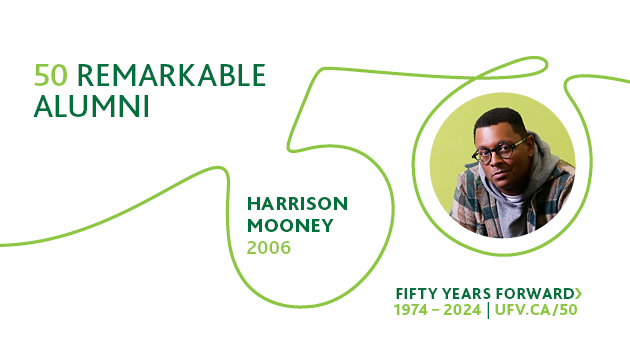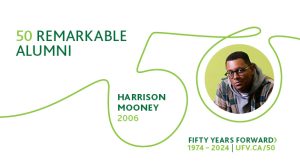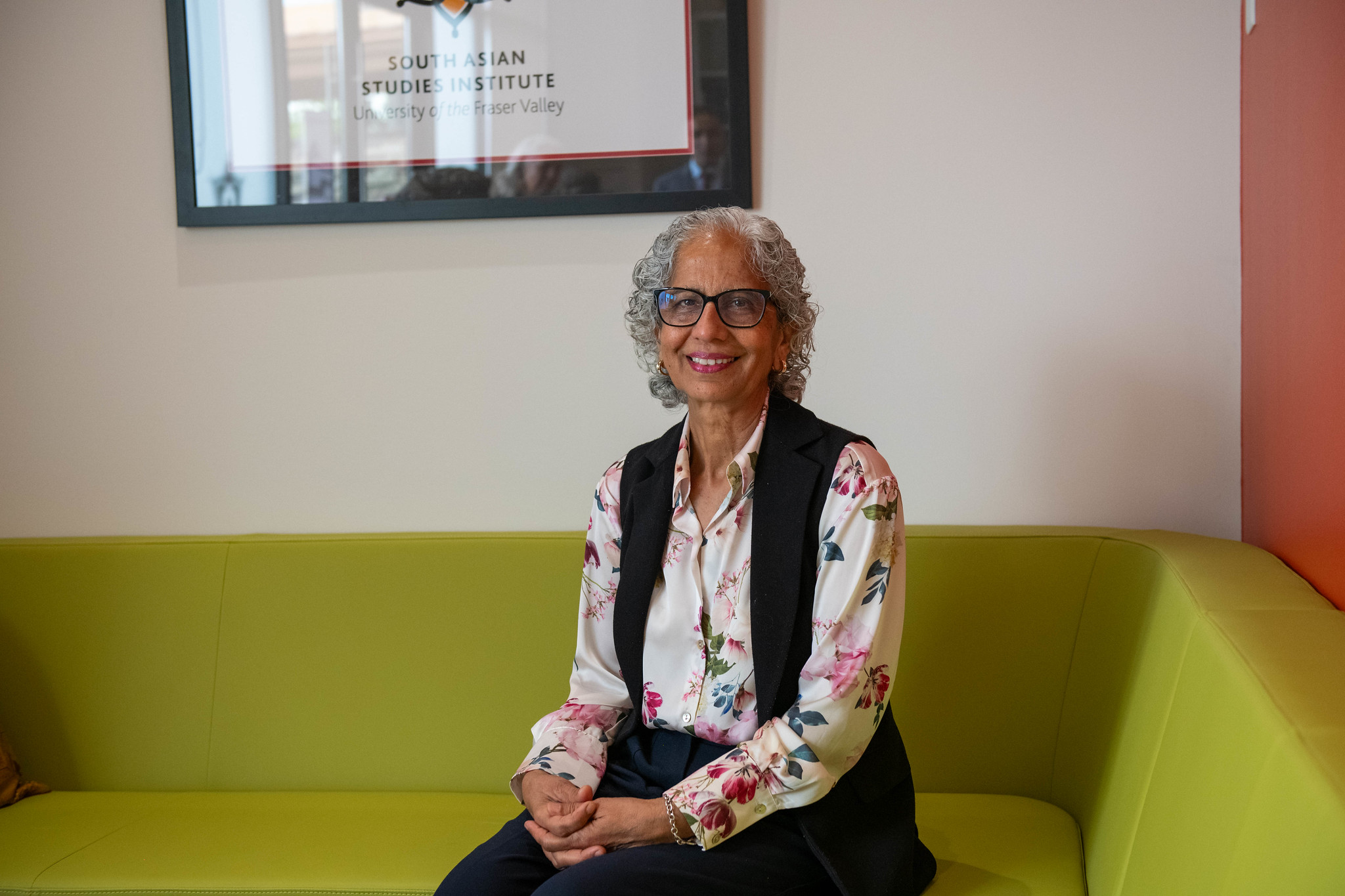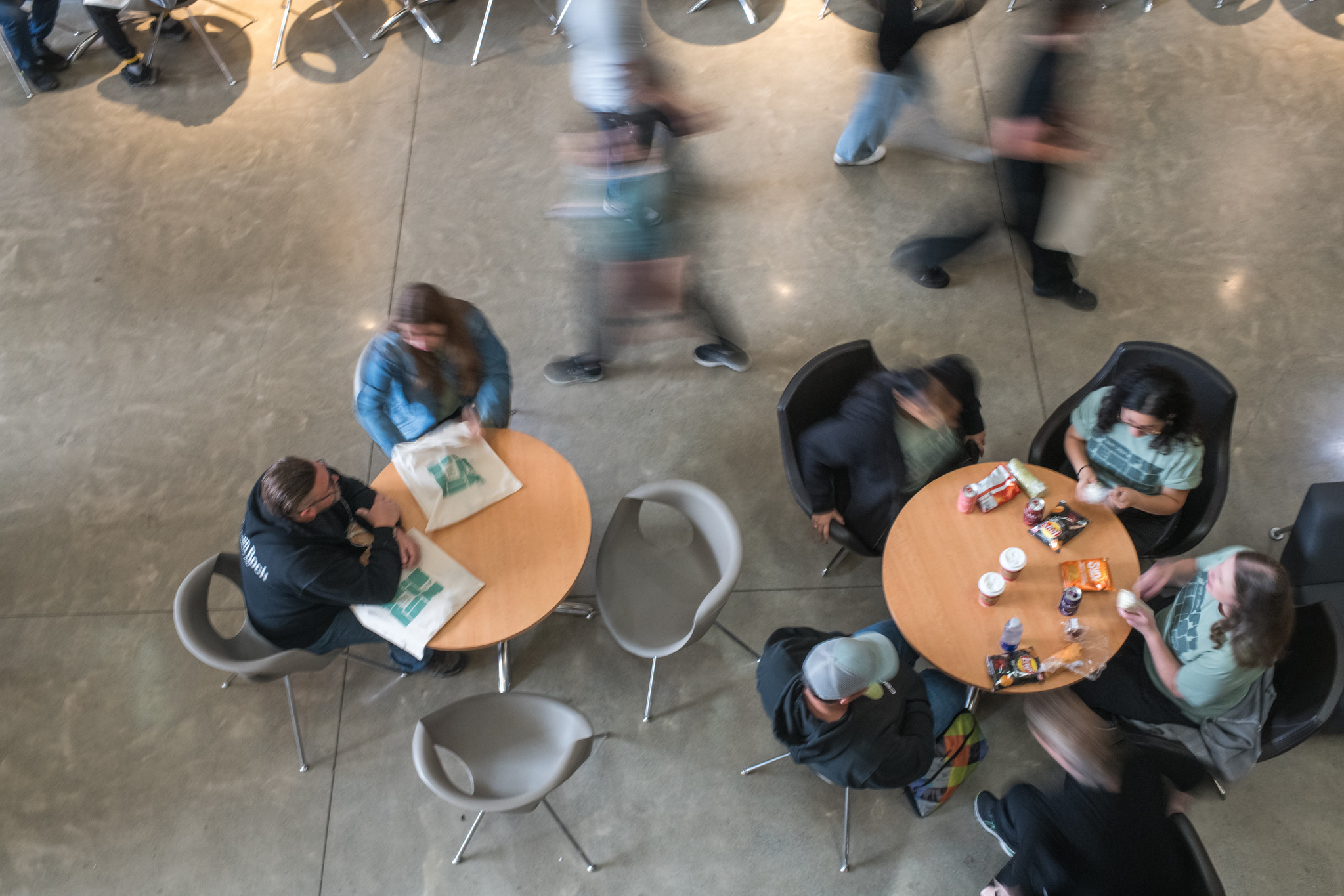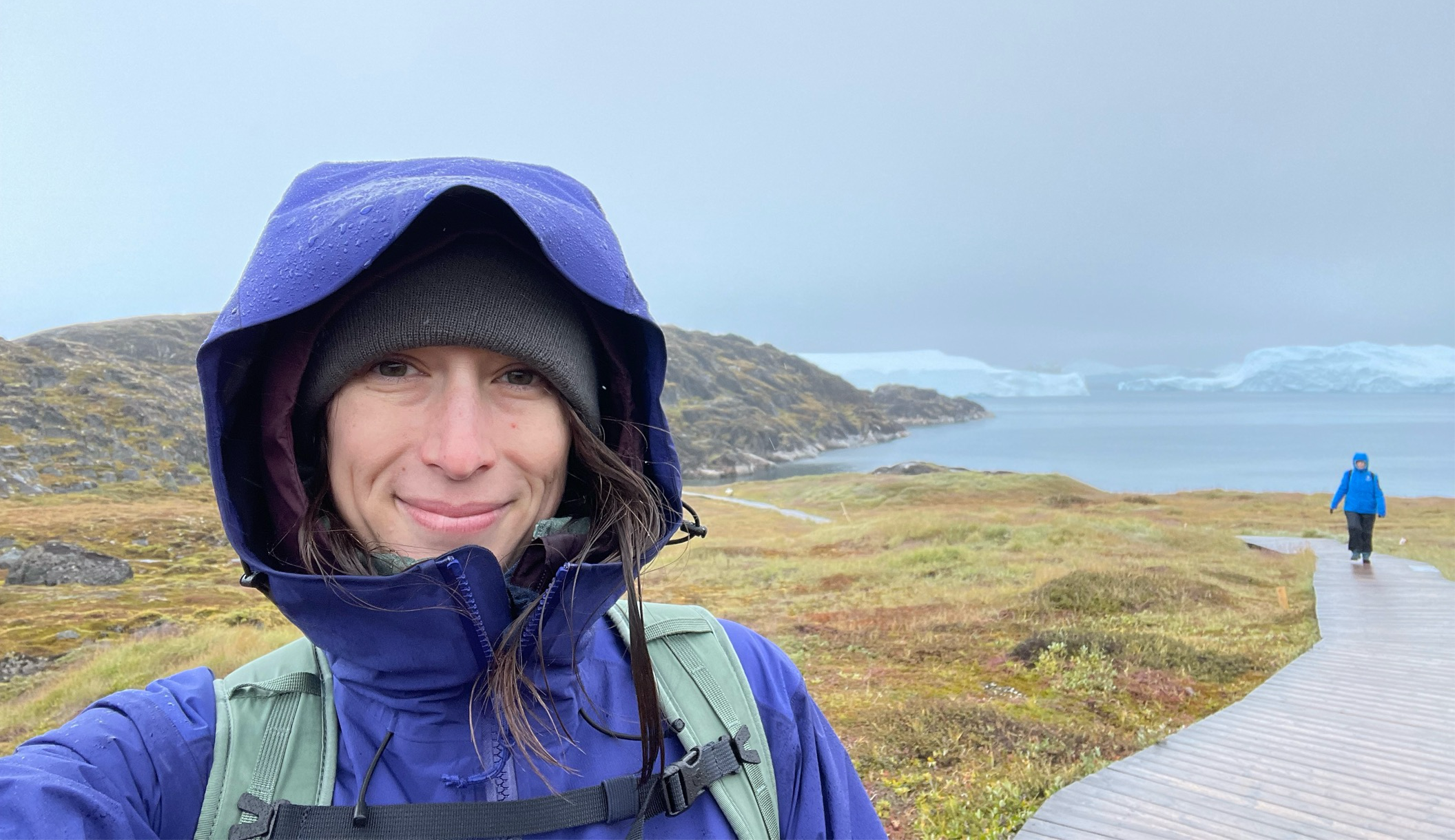50 Remarkable Alumni: Telling his story was terrifying but liberating for Harrison Mooney
For Harrison Mooney, the question wasn’t if he would write his story. It was when.
“I could read before I started school, and my goal from a young age was to write books,” he recalls.
That story was greatly influenced by his experience growing up as a Black adoptee in a fundamentalist Christian white family in Abbotsford.
“I always felt that my story had to be told, that I needed to make myself known,” Harrison says. “I felt that I did not really have my own identity. Everything I had was wrapped up in my adoptive family. My narrative was presented to me. I needed to reframe and reclaim my own story in a way that gave me a sturdy sense of self.”
Harrison attended Christian schools or was home-schooled throughout his life up until his third year of post-secondary when he transferred to the University of the Fraser Valley from a private Christian university and finished his BA in English in 2009.
“It was a great big culture shock coming to UFV,” he recalls. “I had never been near a secular institution before. It was a whole different approach, with exposure to new ideas and an openness about who I was and who I wanted to be. I found it very surprising and inspiring.”
He found his English professors inspiring, singling out Hilary Turner and the late Jim Andersen.
“I was lacking in confidence and a sense of self. They really pumped my tires about my skills as a writer. My thoughts were valued and they gave me advice on how to get better. I owe a lot of my success to their guidance and wisdom.”
After university, Harrison pursued a career as a sportswriter, landing a job at the Vancouver Sun in his twenties. As the newsroom began to downsize, he seized opportunities to move into copy editing, general assignment reporting, and columns.
In 2020, with another round of layoffs pending, he took a buyout and decided to focus on writing his memoir about growing up Black and adopted in Abbotsford, a story that had been percolating his whole life.
“I had tried to write it since my late teens. The impulse to tell my story never left. I tried fictionalizing it or adding surreal elements to distance myself or shield my adoptive family, but it never felt like a rich or true narrative until I told the story straight as I had lived it.”
It was “terrifying” to share his trauma on the page, and sharing his story publicly sealed the deal on what was already an almost full estrangement from his adoptive family. But he’s glad he did it.
“I was so scared. I had a lifelong drive to get ‘kept’ but telling my story turned out to be freeing. In the end I was not ‘kept’ but it was okay.”
He finished his initial pitch and sold the manuscript amid the Black Lives Matter movement in 2020.
“That worked out for me, but I tell every writer, that if you have a story to tell, you need to find a way to tell it, and you will eventually find your audience in one form or another.”
His memoir, Invisible Boy, was the winner of the 2023 Kobo Emerging Writer Prize and was shortlisted for two BC and Yukon Book Prizes, the Hurston/Wright Legacy Award, and the Governor-General’s Literary Award for English non-fiction.
He has served as writer-in-residence for the Vancouver Public Library and returned to the Fraser Valley as a guest speaker at several events, including UFV’s literary festival.
“My experience had been that my voice did not matter much. I expected no fanfare. I was stunned when the book was so well received. And I was surprised how positive the response has been in the Valley. Local success can be hard to come by. I criticized and satirized a lot of institutions in my book.”
He has some advice for aspiring writers.
“Write a lot, read more than you write, and reach out to literally anybody who might have influence in the publishing sector,” he says. “Your story matters. Nobody can tell you that it doesn’t matter or change it on you. Come what may, at all costs, your story is yours and you have the right to tell it.”
Harrison is now at work on his second book titled Bittersweet, A Memoir of Recovery. It covers the experience of reuniting with his birth mother and then losing her to leukemia.
He is an associate editor at the Tyee online newsmagazine and lives in East Vancouver with his family.


